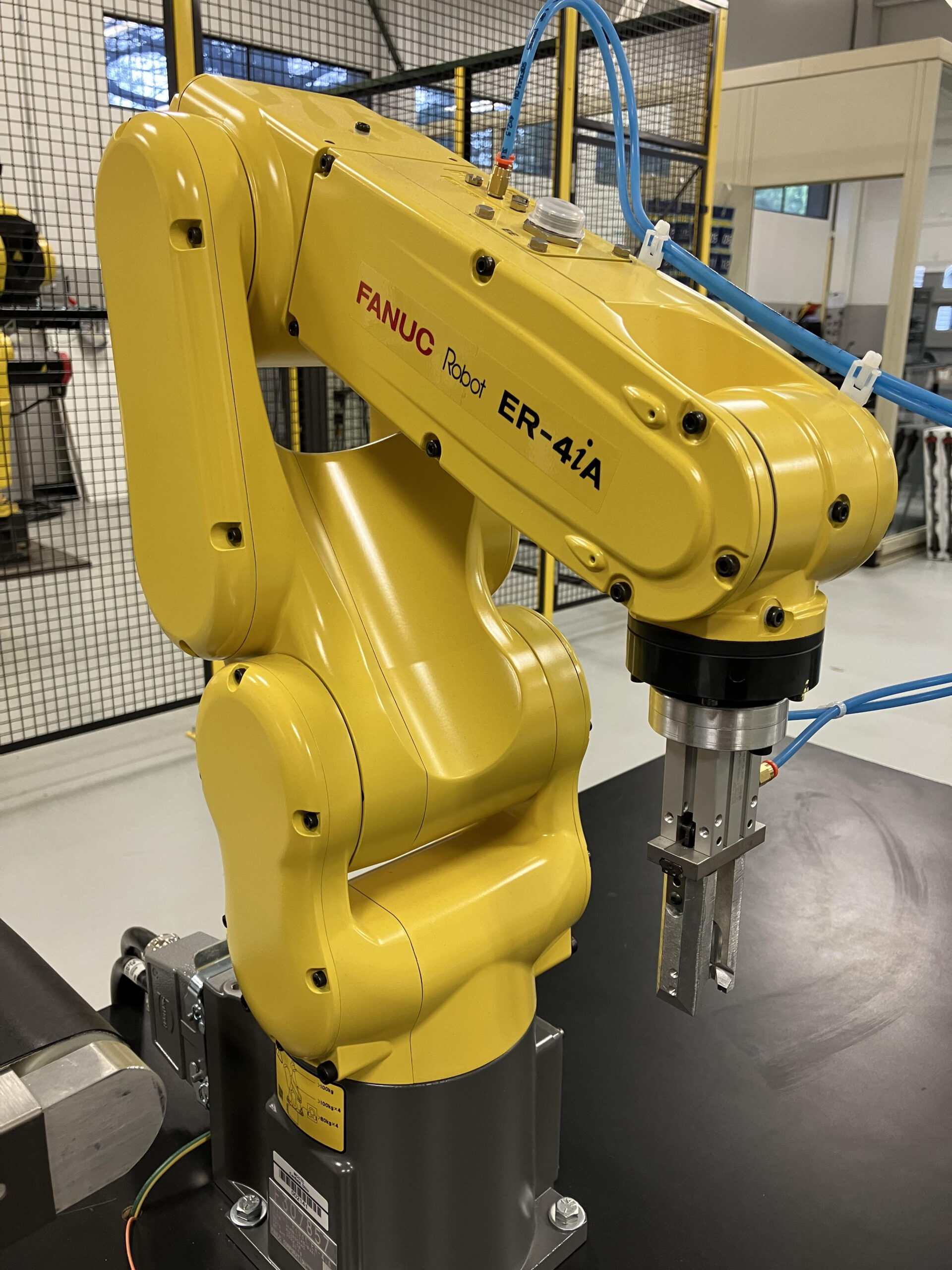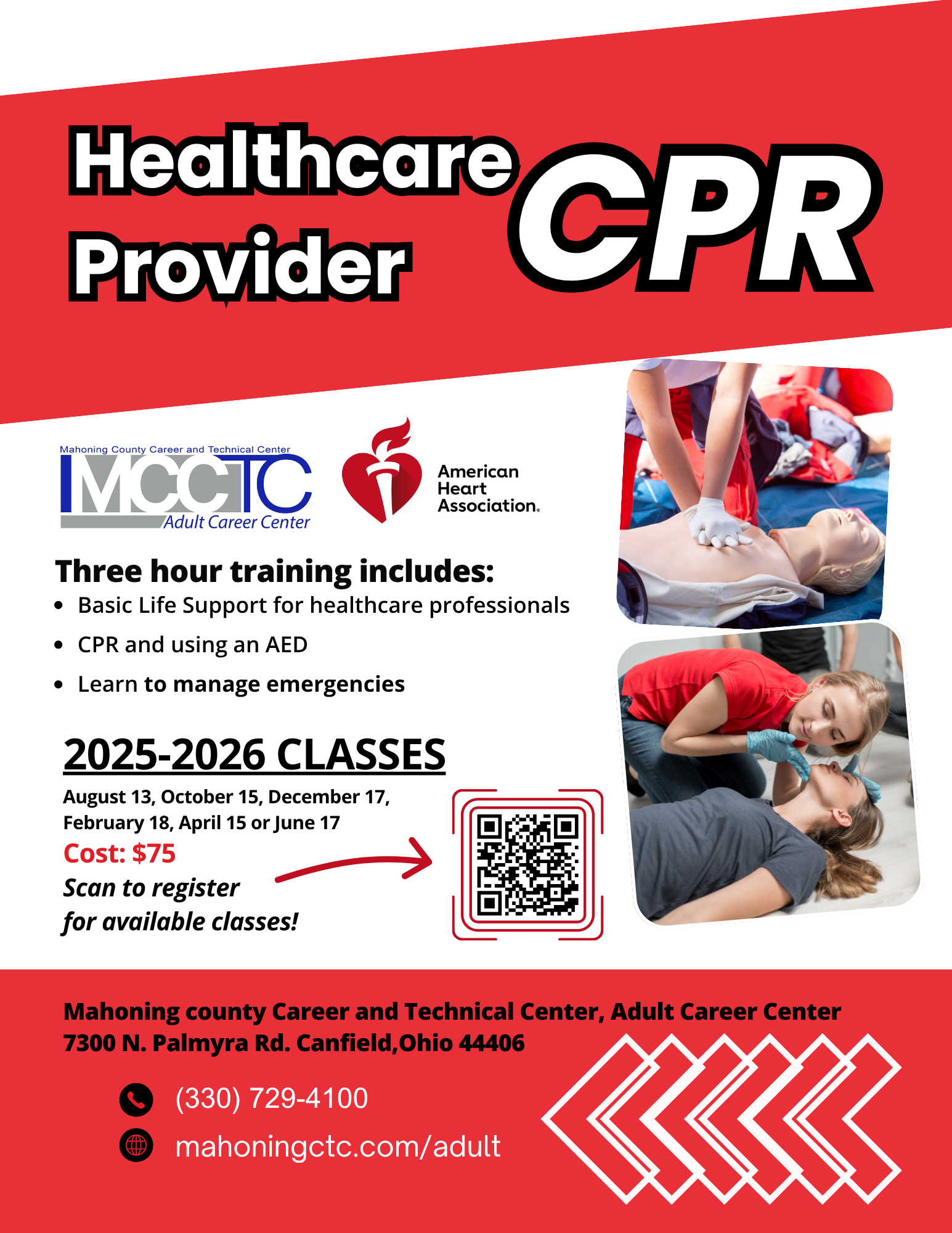The Rise of Robotics: An Evolution of Skill
The Rise of Robotics: An Evolution of Skill
More Than Just a Job: Part 2
by Dom Fonce
August 14, 2023
MCCTC adult robotics instructor, Tom Mihalopoulos, sits across from me and talks about the future. I ask him, “How will robotics impact the world in 15 years?” He first talks about the past, how the technology of the past has evolved to today, and how the technology of today will evolve in the future. We also talk about the ethics of automation, the speed at which it advances, and economic concerns, but ethics isn’t what Tom teaches. We both agree with the truth of this phrase: It’s happening whether people like it or not. I hear, and say, this phrase a lot when talking about automation—to me, the phrase has a negative tone, as if we’re all resigned to a negative, robot-ran future. I think this is the wrong approach to robotics. Instead, we should be excited by the opportunity robotics and automation creates. Tom’s story highlights why I think this is the case.
Tom’s story is that of workplace evolution. Tom grew up in Athens and Samos, Greece, before moving to the U.S. at age 10. I ask him what his history with work is. He says, “As a kid, I used to work for nothing, just because I liked cutting grass, painting little old lady’s houses. Stuff like that.” He says his father was a hard worker, so he wanted to mimic him. However, early on, school was difficult for Tom. He describes himself as being terrified of doing something wrong while in school. Then later, while going to school in the U.S., the language barrier made Tom feel insecure.
He tells the story of him holding his mother’s hand during his first day of school in Greece. Then, a teacher frightened him by snatching him away from his mother. He describes his fear of school as “a fear of the unfamiliar.” But, Tom finished school in Greece, then later in the United States. He would go on to vocational school, learn carpentry and construction, and work in that field. However, Tom evolved from field to field. He moved to bridge painting, then operating and managing CNC machinery, and now into education. He also describes an evolution from “the hammer and nail, seeing the final product immediately” to working on sophisticated computer programs, which at first did not feel natural, but he fell in love with after he witnessed what the machines could do.
The fear of failing within academia is something Tom had to overcome. However, while talking with him, I discover Tom has a passion for learning and teaching that stems from the workplace. Tom isn’t afraid to ask coworkers about their methods, and he seems genuinely curious about how others function on the job. He also makes it clear that he will never be afraid to share his knowledge to younger or newer coworkers. Tom says, “The best way to learn is by making mistakes.” In his classroom, he makes it a point to highlight his students’ mistakes, not to embarrass them, but to use the moment to teach. Of course, Tom clarifies that making mistakes in the field cannot happen. That’s why making mistakes in the classroom, and within virtual software, is so important.
Tom is a certified FANUC instructor. In instructing FANUC, Tom and his students work with robotic arms of various sizes and with various attachments. Specifically, he instructs employees of businesses who need robotics training. He says he appreciates working with these types of students because there are stakes to their learning—they must return to their employers demonstrating their gained knowledge. So, his classroom environment is professional and serious, but fun and exciting once students begin programing the robotic arms.
Tom says his transition into being an instructor hasn’t been easy, but it has been extremely rewarding. As he continues to teach the course, he says instructing becomes easier, and he’s able to add to his teaching style, adjust the way he interacts with students, and experiment with exercises. His hope is to eventually become certified to instruct even more FANUC systems as time passes.
I ask Tom again about the future of robotics. He begins talking about the present. He says, “Most workplaces already have robotics and automation.” He brings up how the public has to adjust to these changes and, by all accounts, largely have adjusted to these changes already. For example, the rise of self-checkout stations is well underway, and the public has adjusted to it with little issue. Additionally, McDonald’s has created their first mostly-automated restaurant. Automation on the road, in our homes, in our educational institutions, and at our jobs is happening. That is why learning how these machines work is invaluable: not learning them will put you behind.
I ask Tom a loaded question: Is automation good? He responds asking for clarification. I ask, “Do we lose anything with the rise of automation?” He lays down two possible fears he has of automation. 1.) Will we lose personability? and 2.) Will we lose a sense of craftsmanship? I think these are fantastic questions to ask ourselves. Surely, if these two human qualities are lost via automation, humanity will suffer in some way. These concerns aren’t reason to reject robotics and automation, but create a worthwhile challenge for us to rise to. It is our duty to advance and conserve simultaneously. How we do this will require care and consideration, ingenuity and dialogue.
Tom briefly makes a point about the popularity of vintage cars and records. Vintage cars do not contain the same level of technology as a 2023 model, and records are not as practical and portable as music streaming platforms, but they are still viewed as valuable. Tom and I both believe, as technology advances, humans will still value vintage forms of technology. The technology we use today will eventually become vintage, and we will adapt to new technologies, but won’t forget or lose interest in the technology we grew up with.
Admittedly, I entered my conversation with Tom a little apprehensive about automation. However, learning his story changed my mind. Tom grew from a child who painted houses for free to a blue-collar carpenter to an instructor of complex robotics programming in his lifetime. I have no doubt, just as technology has changed throughout Tom’s life, Tom will continue to evolve as the world evolves. And, as technology continues evolving in the future, we all need to evolve thoughtfully alongside it—not downtrodden and obsolescent, but intelligent, skilled, and adaptable people.
Tom’s fall FANUC classes start on September 11th, 2023. Contact Jim Jarvis at 330-729-4100 to learn more.
Read another story

Dom Fonce is a Marketing Content Writer for Mahoning County Career and Technical Center Adult Career Center. He holds a bachelor’s degree in English from Youngstown State University and a Master of Fine Arts degree from the NEOMFA. He has published two books of poetry. His work can be found at domfoncepoetry.com.



